Florence Nightingale or the ‘Lady with the lamp’ as she was famously called, was a pioneering figure in the institution of nursing and healthcare.
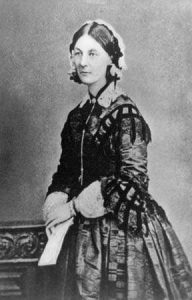
She was described as ‘The common soldier’s savior, the ideological leader of nursing reform, and a pioneering social reformer’, some of the many qualities that she was attributed to.
Birth and Early Life
Florence Nightingale was born on May 12th, 1820 in Florence, Italy. She was the second of two daughters born to William Edward and Frances Nightingale.
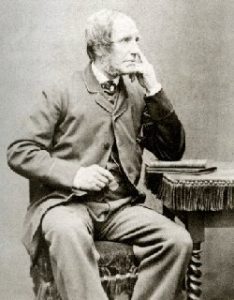
William Edward’s original surname was Shore; he changed his name to Nightingale after inheriting his great-uncle’s estate in 1815.
Nursing and Florence’s Contributions
Named after the city of her birth, she is arguably the most famous Victorian after Queen Victoria herself. Florence was a very intelligent child, excelling in various subjects such as mathematics and languages.
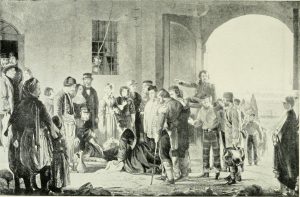
At the age of 16, she experienced a calling from God which was nursing. She viewed her particular calling as reducing human suffering. Nursing seemed the suitable route to serve both God and humankind.
Florence Nightingale Family
Her family was strongly against her going into the nursing profession, saying that it was not suitable for a woman to go into that profession. But, despite her family’s objections,
Florence was eventually able to enroll at the Institution of Protestant Deaconesses at Kaiserswerth in Germany for two weeks of training in July 1850 and again for three months in July 1851.
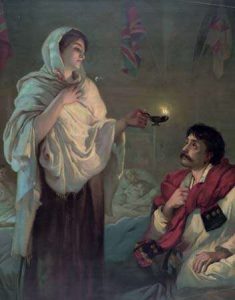
There she learned basic nursing skills, the importance of patient observation, and the value of a good hospital organization.
Breaking free from the family environment, she became the superintendent of the Institution for Sick Gentlewomen (governesses) in Distressed Circumstances, in London, in 1853.
She showed her administrative prowess by improving the organization and management of the hospital and its working conditions.
Florence Nightingale Crimean War
Florence wanted to train nurses and become superintendent at Kings College Hospital, London. According to Britannica, ‘The British and the French, allies of Turkey, sought to curb Russian expansion.
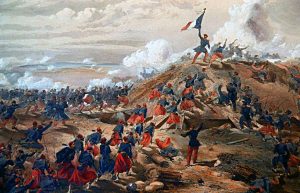
The majority of the Crimean War was fought on the Crimean Peninsula in Russia. However, the British troop base and hospitals for the care of the sick and wounded soldiers were primarily established in Scutari, across the Bosporus from Constantinople.
The status of the care of the wounded was reported to the London Times by the first modern war correspondent, British journalist William Howard Russell.
Florence Nightingale Facts
The newspaper reports stated that soldiers were treated by an incompetent and ineffective medical establishment and that the most basic supplies were not available for care. The British public raised an outcry over the treatment of the soldiers and demanded that the situation be drastically improved.’
After being requested by Sidney Herbert to take a team with her and go to the base, Florence arrived at the medical camp to find the conditions filthy, unsanitary and an uncooperative staff.
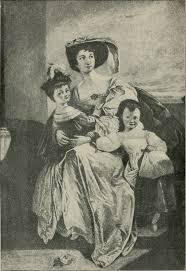
She decided that adequate supplies needed to be provided to care for the soldiers properly. She bought equipment with the funds provided by the London Times and enlisted soldiers’ wives to assist with the laundry.
Florence Nightingale Theory
The wards were cleaned and basic care was provided by the nurses. Most important, she established standards of care, requiring such basic necessities as bathing, clean clothing and dressings, and adequate food.
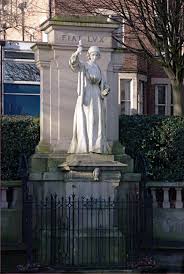
Attention was given to psychological needs through assistance in writing letters to relatives and through providing educational and recreational activities. Nightingale herself wandered the wards at night, providing support to the patients; this earned her the title of “Lady with the Lamp.”
Achievements
On her return to England, Nightingale was suffering the effects of both brucellosis and exhaustion. In September 1856 she met with Queen Victoria and Prince Albert to discuss the need for reform of the British military establishment.
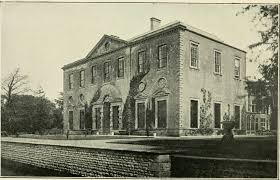
Florence Nightingale improved the health of households through her most famous publication, Notes on Nursing: What It Is and What It Is Not, which provided direction on how to manage the sick. This volume has been in continuous publication worldwide since 1859.
Florence Nightingale Education
In 1855, as a token of gratitude and respect for her, the Nightingale Fund was established. Through private donations, money was raised and put at her disposal, which she used a substantial part of these monies to institute the Nightingale School of Nursing at St. Thomas’ Hospital in London, which formalized nursing education.
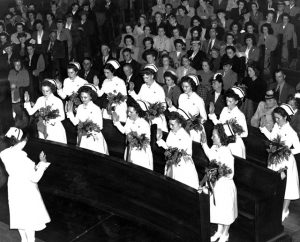
The model was taken worldwide by matrons. Florence Nightingale’s statistical models—such as the Coxcomb chart, which she developed to assess mortality—and her basic concepts regarding nursing remain applicable today. For these reasons, she is considered the foundational philosopher of modern nursing.
Florence Nightingale Death
Florence Nightingale was honored in her lifetime by receiving the title of Lady of Grace of the Order of St. Jon of Jerusalem and by becoming the first woman to receive the Order of Merit.
On her death in 1910, at Nightingale’s prior request, her family declined the offer of a state funeral and burial in Westminster Abbey. Instead, she was honored with a memorial service at St. Paul’s Cathedral, London. Her burial is in the family plot in St. Margaret’s Church, East Wellow, Hampshire.